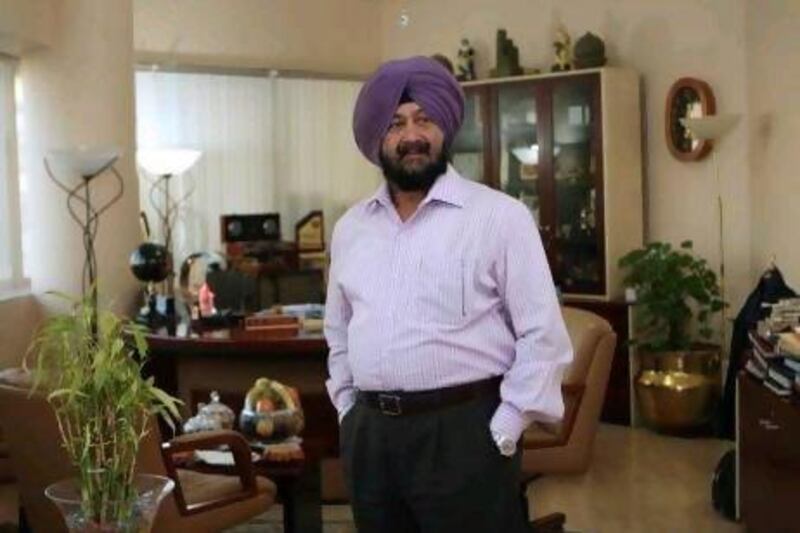DUBAI // An Indian businessman has paid close to a million rupees to secure the release of two compatriots on death row in Sharjah.
TS and PS were found guilty of murdering Chinna Ganganna Chepuri from Hyderabad on May 26, 2009. They were also found guilty of bootlegging alcohol.
The Dubai-based businessman, SP Singh Oberoi, the founding president of the Indian Punjabi Society, arranged to pay blood money of more than 800,000 rupees (Dh56,500) to the victim's family, thereby securing their pardon and release.
He said the men will be free to return home by next week.
"We have paid blood money after tracing the victim's family and obtaining the letter of pardon. Their death penalties have been waived and they will be released in a week's time," he said.
Satnam Singh, the father of PS, 24, said he was overjoyed to hear his son would be released from prison. "I will be seeing him for the first time in four years," said Mr Singh. "It will be the happiest day of my life."
Mr Singh said his son moved to Dubai to work as a construction labourer in 2008. "I got a call from him after a few months and he said that he left the company due to non-payment of salaries and landed in the jail," he said.
Mr Singh said his family had borrowed up to Dh8,000 from friends and relatives to send their son to Dubai.
"We are yet to repay the money which we borrowed," said Mr Singh. "It was difficult for us to believe that he was in jail. He went there to earn money and support the family. We were shattered when we heard the news."
Today, he is ready to welcome his son home. "We are waiting for him to come back and start a new life," he said.
"We are from a poor family and work as agricultural labourers. It is going to be very difficult for us."
The case of TS and PS was overshadowed by that of 17 Indians who were also arrested in 2009 for a bootlegging brawl that lead to the death of a Pakistani man, Misri Nazir Khan.
In that case, too, the men were all sentenced to death. They were granted a reprieve when Khan's family forgave the men in exchange for Dh3.4 million in blood money.
The 17 are yet to be released from prison because two other men who were injured in the brawl have filed a Dh1.5 million civil compensation claim against them.
Mr Oberoi had a hand in the pardon of the 17 Indians, too, contributing more than 50 per cent of the settlement amount.
And, earlier this year, Mr Oberoi escorted three Indian men home after they were pardoned from death row with a Dh150,000 settlement.
Mr Oberoi said there are other men in prison for who he is still working to secure a release. "I am trying to arrange pardon letters so that these men are released to lead a normal life," he said. "Their families should not suffer because of the mistakes made by their children," he said.
Mr Oberoi said he has been going to various labour camps to create awareness about the dangers of bootlegging.
"I am telling the men not to get into this illegal trade and spoil their life," he said. "A small mistake can land them in a big trouble and lead to death penalty."






